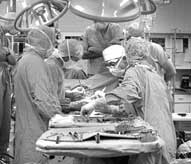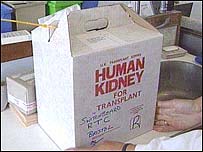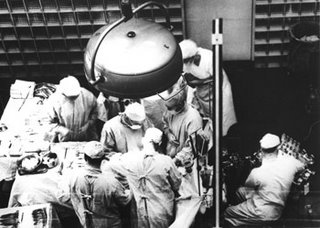
An Associate Professor from the Yale University School of Medicine has recommended payments for living organ donations.
Amy Friedman (Organ Transplantation and Immunology) advocates a regulated system for the payment of
 organ donors in a recent article, published in the British Medical Journal (BMJ). Friedman suggests that there are tangible benfits of living donor transplantations not only for the recipient but also their family members, and hospital staff (in their ability to "fulfil" the tasks of their employment), and ultimately taxpayers (otherwise obliged to support various treatments required without transplantation, such as dialysis). Arguing for this kind of economy for transplantation, Professor Friedman notes that living donors are nevertheless prohibited from receiving valuable consideration for their gift. However, if a living donor subsequently requires a transplant, then they will receive a kind of "tangible benefit" in that they are moved to the top of waiting lists for organs from deceased donors.
organ donors in a recent article, published in the British Medical Journal (BMJ). Friedman suggests that there are tangible benfits of living donor transplantations not only for the recipient but also their family members, and hospital staff (in their ability to "fulfil" the tasks of their employment), and ultimately taxpayers (otherwise obliged to support various treatments required without transplantation, such as dialysis). Arguing for this kind of economy for transplantation, Professor Friedman notes that living donors are nevertheless prohibited from receiving valuable consideration for their gift. However, if a living donor subsequently requires a transplant, then they will receive a kind of "tangible benefit" in that they are moved to the top of waiting lists for organs from deceased donors.Friedman argues that this moral recognition of a reward suggests the basis for other types of reward, including monetary. On this point, she raises the legality of payment in the US for donations of other bodily material, including blood, sperm, and eggs, as well as legalised mechanisms for the "use of the intact, functional body" in surrogate pregnancy and prostitution in order to derive a kind of societal benefit.
In this area, payment to research volunteers is especially relevant when considering the "risk" in the relationship. Particularly in the context of the recent controversy in the UK regarding the Northwick Park drug trials, the adequacy of information and the validity of the consent to participate raises important questions. The information provided to volunteers is critically important to the individual calculation of the risk assumed by those volunteers.
Friedman concludes that the establishment of a regulatory system of payment would i
 mprove the equitable access of recipients to donor organs, and would not simply exploit the needy. Rather, it would bring "black economies" and unregulated activities, such as those recently reported in China, "out of the closet."
mprove the equitable access of recipients to donor organs, and would not simply exploit the needy. Rather, it would bring "black economies" and unregulated activities, such as those recently reported in China, "out of the closet."Friedman suggests, "If military service can be recognised with inducements such as paid education, enlistment bonuses, and financial recovery for injury or mortality, why should the decision to donate an organ be viewed any differently?"


No comments:
Post a Comment